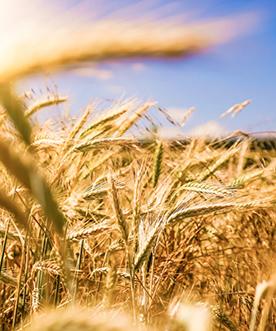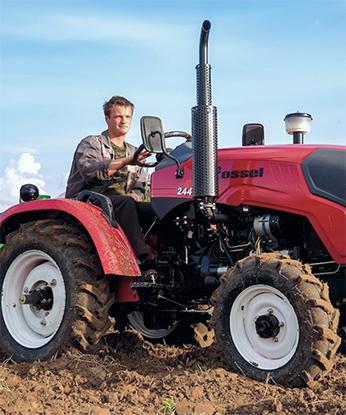Přejít na domovskou stránku
Crop farming
2211 články a zdroje
Např.: zavlažování, David Simmons, biomasa,...


2211 články a zdroje


Document
01-09-2023
Because variables such as temperature and humidity have a profound effect on the activity of crop pests, diseases and natural enemies, the ability to monitor environmental conditions within a crop has always been important for crop protection.
Document
31-03-2022
Sustainability in the agri-food sector is essential to ensure reduced pressure on natural resources and good living conditions in rural areas (FAO, 2014). Achieving this objective largely depends on the constant introduction of innovation along the whole agri-food chain (OECD, 2019). Public policies can play a forefront role in this regard (OECD, 2021). However, although many studies and reviews focused on the issues at farm level, little is still explored regarding the impact of public policies on agri-food chains as a whole (Uthes & Matzdorf, 2013).
Document
01-06-2020
This document is designed for use by onion farmers and agronomists in Europe to inform them on smart technologies and methodologies available to them for Integrated Pest Management (IPM) solutions in open-field systems. The SMART IPM technologies are divided into four main technique types each with subsections of their own: Monitoring (Pest monitoring, Crop Monitoring, Others), Diagnostics and detection (ELISA, RNA and DNA, Mobile disorder detection, Others), Decision support (With sensors, Without sensors), Application (Sprayers, Sprayer drones, Mechanical weeders, UV techniques, Distribution system for beneficials, others).
Document
01-06-2020
This document is designed for use by lettuce farmers and agronomists in Europe to inform them on smart technologies and methodologies available to them for Integrated Pest Management (IPM) solutions in open-field and greenhouse systems. The SMART IPM technologies are divided into four main technique types each with subsections of their own: Monitoring (Pest monitoring, Crop Monitoring, Others), Diagnostics and detection (ELISA, RNA and DNA, Mobile disorder detection, Others), Decision support (With sensors, Without sensors), Application (Sprayers, Sprayer drones, Mechanical weeders, UV techniques, Distribution system for beneficials, others).
Slideshow/Presentation
15-03-2017
Presentation on EU farmers' needs and interests in smart farming based on survey results
Slideshow/Presentation
01-02-2023
These slides aim to introduce future trainers to: - the world of digital tools and services. - the FAIRshare DATS (Digital Advisory Tools and Services) inventory. - the successful use of DATS in practice. - common struggles during implementation principles of adult training.
Slideshow/Presentation
02-01-2022
- Humans always shared stories and tales in order to convey knowledge, morals, and history. - What is Storytelling? - Storywards - The whole person is involved with heart and mind. - "People learn best through stories." - "Stories are the best way to pass on and absorb complex things.
Document
01-06-2020
This document is designed for use by tomato growers and agronomists in Europe to inform them on smart technologies and methodologies available to them for Integrated Pest Management (IPM) solutions in open-field and greenhouse systems. The SMART IPM technologies are divided into four main technique types each with subsections of their own: Monitoring (Pest monitoring, Crop Monitoring, Others), Diagnostics and detection (ELISA, RNA and DNA, Mobile disorder detection, Others), Decision support (With sensors, Without sensors), Application (Sprayers, Sprayer drones, Mechanical weeders, UV techniques, Distribution system for beneficials, others).
Image
01-06-2022
The production of vegetables is not always easy dueto weather variability or soil availability. To tackle these barriers, producers often resort to greenhousesas a solution. In addition to being a stable alternative to outdoor cultivation, greenhouses can be very sustainable systems if resources are used responsibly. Innovation facilitates in many ways the efficient use of resources.
Document
01-06-2020
This document is designed for use by cucumber farmers and agronomists in Europe to inform them on smart technologies and methodologies available to them for Integrated Pest Management (IPM) solutions in open-field and greenhouse systems. The SMART IPM technologies are divided into four main technique types each with subsections of their own: Monitoring (Pest monitoring, Crop Monitoring, Others), Diagnostics and detection (ELISA, RNA and DNA, Mobile disorder detection, Others), Decision support (With sensors, Without sensors), Application (Sprayers, Sprayer drones, UV techniques, Distribution system for beneficials, others).